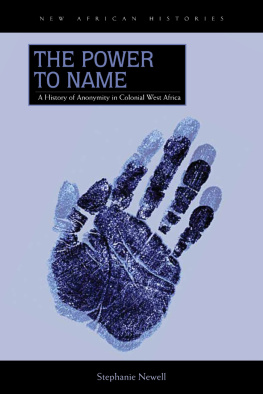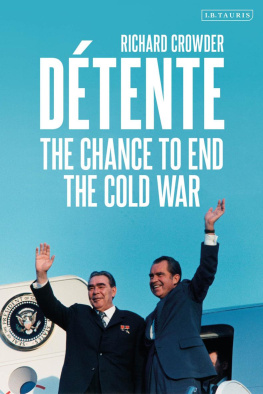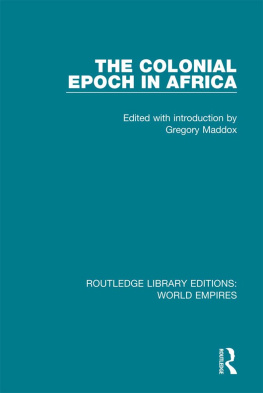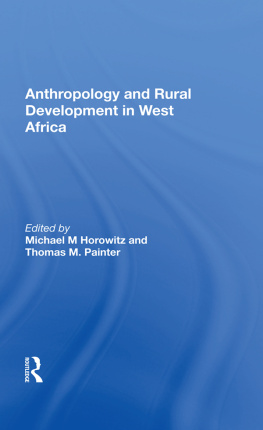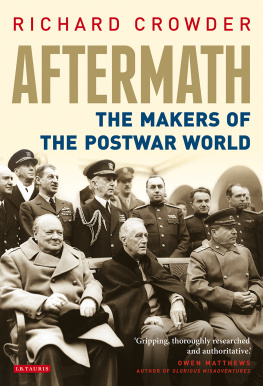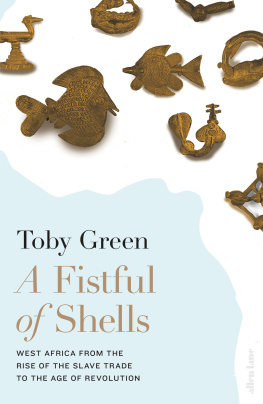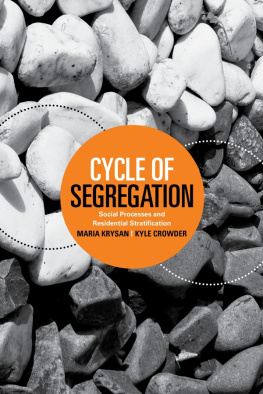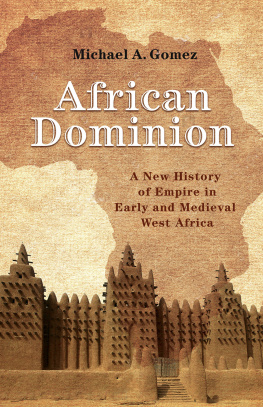First published 1978 in Great Britain by
FRANK CASS AND COMPANY LIMITED
This edition published 2012 by Routledge
Taylor & Francis Group, 711 Third Avenue, New York, NY 10017
Taylor & Francis Group, 2 Park Square, Milton Park, Abingdon, Oxon 0X14 4RN
Copyright 1978 Michael Crowder
ISBN13: 978-0-71462-943-8
All Rights Reserved. No part of this publication may be reproduced in any form or by any means, electronic, mechanical, photocopying, recording or otherwise, without the prior permission of Frank Cass and Company Limited in writing.
PREFACE
For the past twenty years, since flying across the desert in a rickety military aircraft to join the Nigeria Regiment for fifteen months of National Service, I have been fascinated by the impact of colonial rule on West Africa. This fascination has been committed to print in a number of books and articles, including a travel book and a number of contributions to newspapers and magazines. Since many of my ideas on colonial rule in West Africa have been expressed in West Africa under Colonial Rule, when Messrs Frank Cass asked me whether they could publish a collection of my articles, I was at first hesitant to permit them to go ahead with the project. I did, however, finally agree in the hope that a series of my articles on the colonial period in West Africa scattered in different journals and symposia, might supplement rather than duplicate West Africa under Colonial Rule. In selecting the articles for publication I have tried to group them together so that they form as coherent a story as is possible for a series of papers which were never written with an eye to publication as a collection. To show colonial rule in West Africa from its inception to its end I have included a modified version of a section of a chapter in West Africa under Colonial Rule on the partition of West Africa. Though in some ways it is cheating to put a section of a book in a collection of essays, I hope that it will be accepted as necessary. Where I have changed my views, say, on the nature of the differences between French and British local administration in West Africa as between Indirect Rule French and British Style published in 1964, on the one hand, and West African Chiefs published in 1970, on the other, I have made no attempt to reconcile them. Nor, when an interpretation has proved wrong, as that of the Niger election of 1958 in Independence as a Goal in French-speaking West African Politics, 1944-60 published in 1965 which has been effectively challenged by Finn Fugelstads Djibo Bakary, the French and the Referendum of 1958 in Niger in the Journal of African History, XIV, 2, 1973, have I altered it. I felt that the business of up-dating essays, some written more than a decade ago, would involve in some cases complete rewrites and change the character of the series in which this collection appears. I have, however, made minor changes to West African Resistance and West African Chiefs which were originally published as introductions to symposia. Their character as introductions has been altered to make them suitable for publication as independent essays. The only paper that has been substantially revised is Colonial Rule in West Africa: Factor for Division or Unity, since before being invited to publish this collection of essays I had already revised it for a public lecture at Makerere University. Inevitably in a collection such as this there is some repetition of explanation in the various essays since they were not written with an eye to publication in a single volume. In order not to destroy the original character of the essays in question, these have not been edited out, except in one case.
These essays treat a number of themes. The first is the contact between the varied cultures of Europe and the equally varied cultures of West Africa which began five hundred years ago. This theme, particularly as it relates to the colonial phase, runs through this volume of essays. The second theme is the scramble by the new, nationalistic powers of Europe to occupy Africa and the way in which Africans resisted them. After considering generally why West African resistance to European occupation was unsuccessful, a case study is presented of the Temne Hut Tax War against the British led by Bai Bureh of Kasseh. This is followed by a study of the widespread rebellions in French West Africa against colonial rule provoked by forced recruitment of Africans for service in the First World War. The role of Blaise Diagne, Deputy of Senegal, as an archetype of the men who accepted the European system in order to win concessions from it, is examined in the context of these rebellions, many of whose leaders hoped to regain their lost independence. This theme is reechoed in a later essay on the movement for independence in French West Africa, which discusses the debate between those politicians who were prepared to work within the colonial framework provided, like Diagne, they could gain concessions thereby, and those who wanted independence.
The problems faced by the colonial powers in imposing new political, social and economic systems on West Africans is next examined, first from the point of view of the colonial rulers, in particular their representatives in the field the White Chiefs of Tropical Africa. This is followed by two case studies of an African polity, Borgu, which was brought under two different types of colonial rule. The varying reactions of the Borgawa to British and French attempts to press their traditional administrative systems into new, alien forms of government are examined in relation to the revolts provoked by these attempts.
The short-term similarities and longer term differences between French and British administration of their West African colonies, which emerge so clearly in the Borgu case studies, are a recurring theme in this collection of essays and are drawn out in a more general study of Indirect Rule, French and British Style. Closely related to this is the fate of the chiefs, still a live issue in West African politics, which raises wider questions concerning historical continuity in the political sphere.
The essay on the colonial situation provides a wider perspective on the total impact of European rule on West African society in the colonial phase, while the brief studies of the Gambia, made while it was still under British administration, provide a glimpse of that impact on a microcosm of colonial society to which the first concessions of eventual independence had not yet been made but when the historical movement towards that goal was already perfectly clear from what was taking place elsewhere in West Africa.
The concluding studies show how Francophone Africa moved towards independence: how French thinking on the relationship of their colonies to the motherland evolved during the Second World War and then how African thinking on this relationship moved from one of integration with profits to independence, if necessary without any dividends, that is from an assimilationist to an increasingly nationalist outlook on this relationship.
Finally, the West African experience of contact with Europe is summed up in an essay reflecting on the differences in political culture that French and British rule had produced and attempting to assess how deep the impact of colonial rule was both within individual colonies and as a factor inhibiting closer integration whether at the political or economic level between independent states that experienced different systems of colonial rule.




